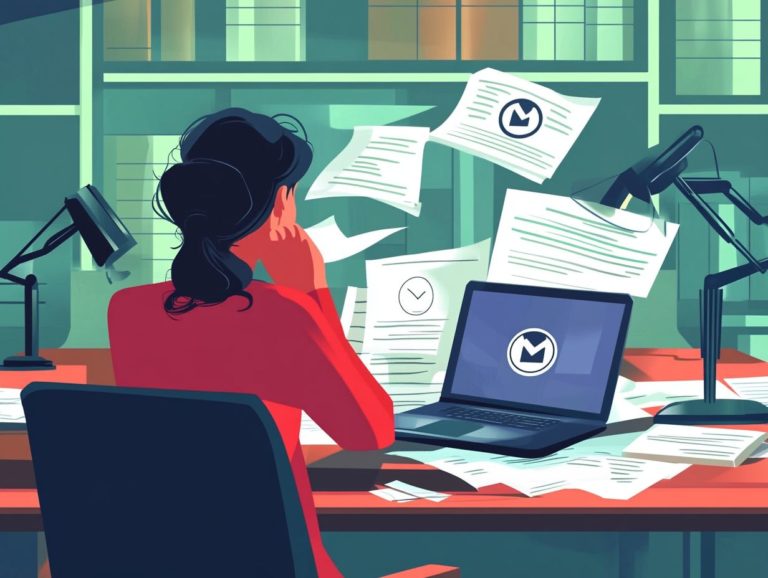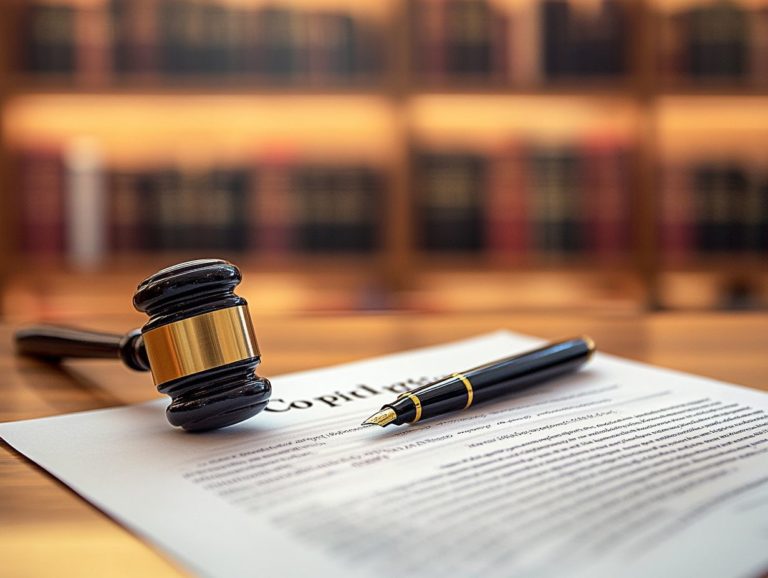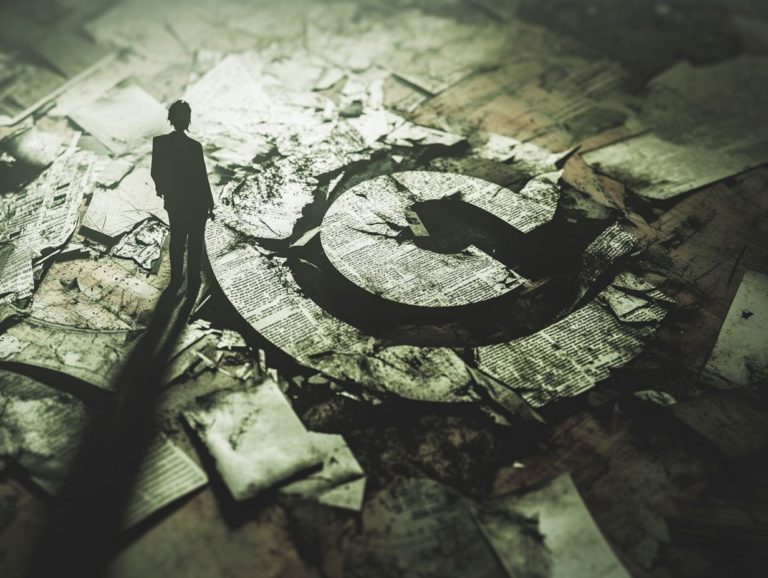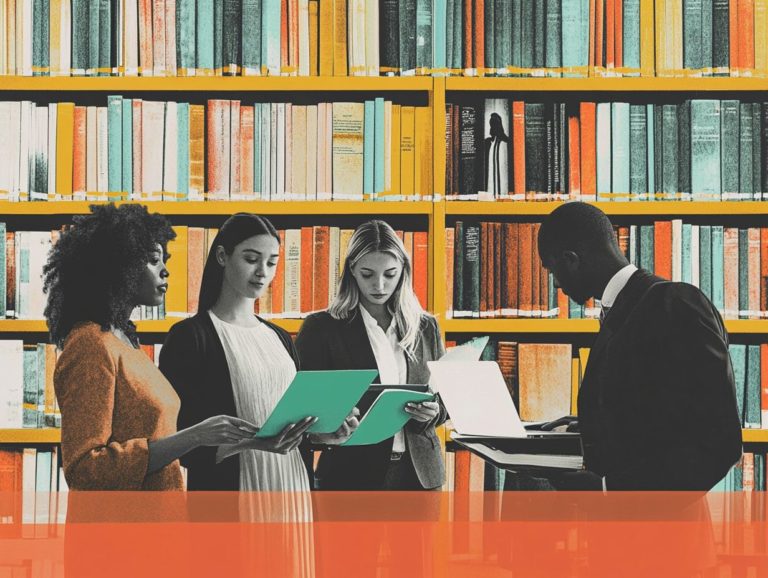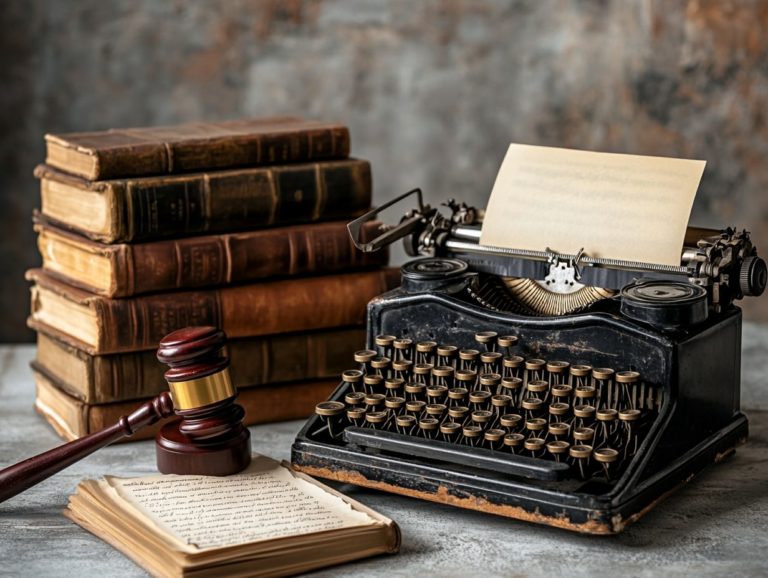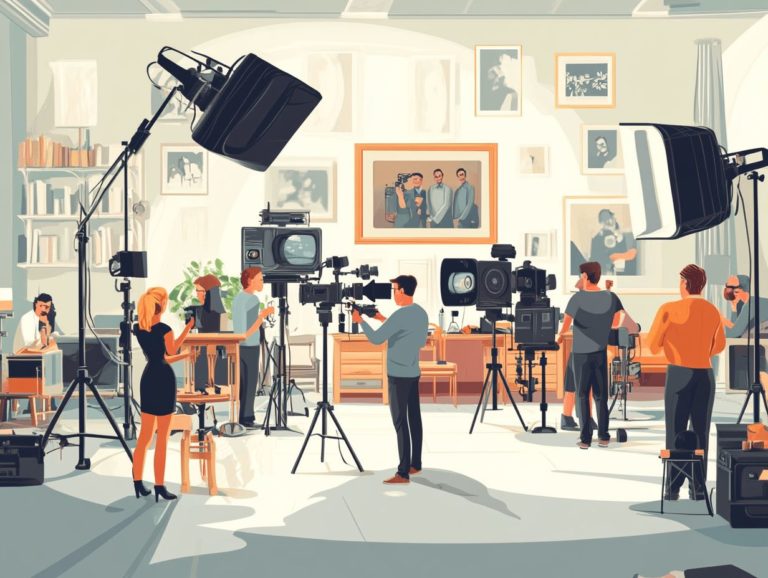5 Essential Resources for Copyright Owners
Copyright serves as a vital shield, safeguarding the rights of creators and honoring the effort they pour into their work.
As an artist, writer, or entrepreneur, understanding how to manage and protect your intellectual property is essential.
This article delves into five indispensable resources for copyright owners, covering everything from registration processes to monitoring tools, legal support, and educational resources.
By arming yourself with this knowledge, you can confidently navigate the intricate landscape of copyright and ensure that your creations receive the protection they deserve.
Contents
- Key Takeaways:
- 1. Copyright Registration
- 2. Copyright Infringement Monitoring Tools
- 3. Legal Assistance
- 4. Copyright Education and Training
- 5. Copyright Management Software
- What Is Copyright and Why Is It Important?
- What Are the Different Types of Copyright?
- What Are the Steps Involved in Copyright Registration?
- How Can Copyright Infringement Be Detected and Monitored?
- What Are the Benefits of Having Legal Assistance for Copyright?
- How Can Copyright Education and Training Help Copyright Owners?
- What Are the Key Features to Look for in Copyright Management Software?
- What Are the Common Challenges Faced by Copyright Owners?
- How Can One Protect Their Copyrighted Material Online?
- What Are the Legal Consequences of Copyright Infringement?
- What Are the Best Practices for Copyright Owners to Follow?
- Frequently Asked Questions
- Top 5 Resources Every Copyright Owner Should Know
- Why is Copyright Registration Important for Copyright Owners?
- What Are Licensing Agreements and Why Are They Important for Copyright Owners?
- Why Should Copyright Owners Seek Legal Counsel?
- How Can Copyright Infringement Monitoring Benefit Copyright Owners?
- What Industry Organizations Can Copyright Owners Join for Support and Resources?
Key Takeaways:
- Register your copyright to protect your creative works.
- Use monitoring tools to catch unauthorized use quickly.
- Educate yourself on copyright laws for better management.
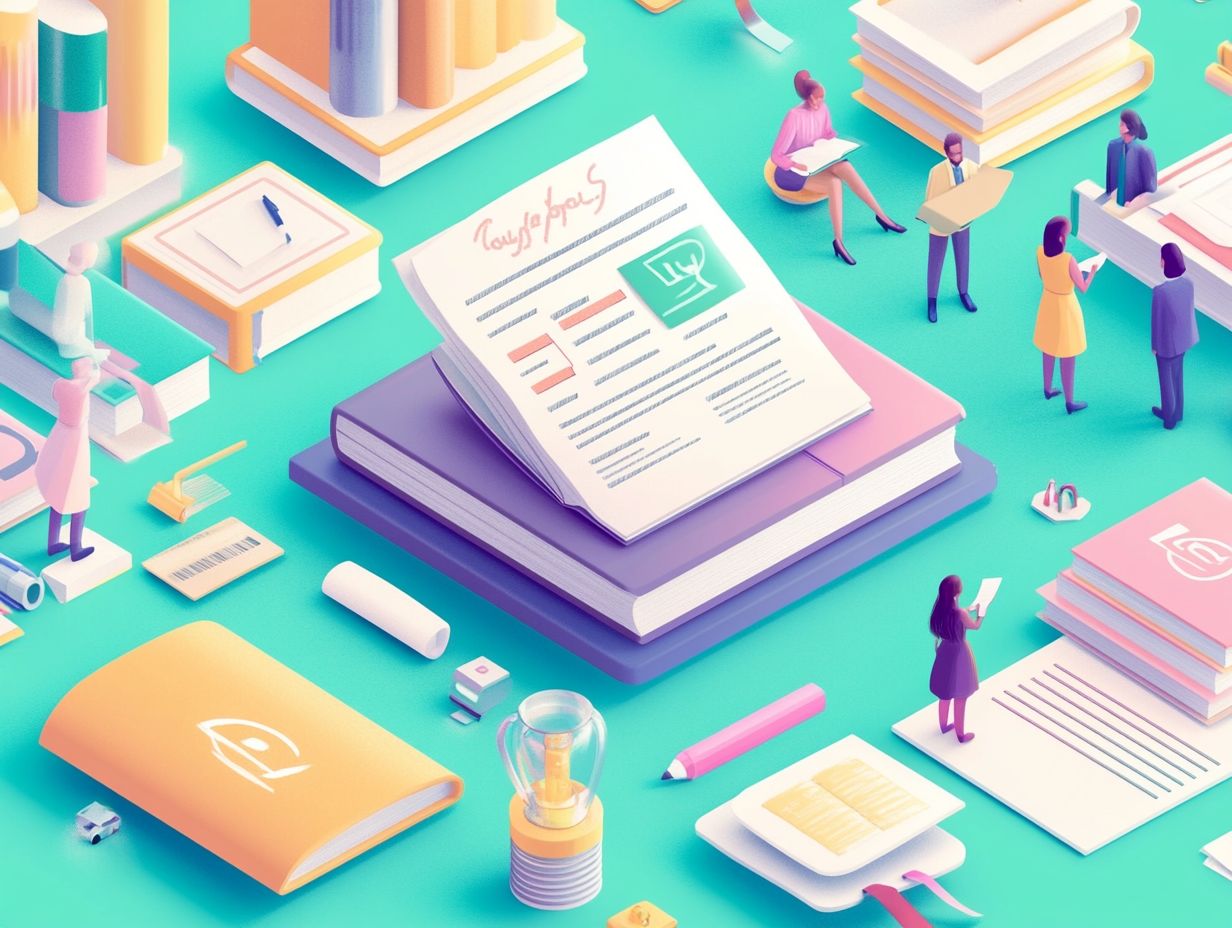
1. Copyright Registration
Registering your work is your ticket to exclusive rights! This essential step allows you to protect your original works under the law that has safeguarded creative works since 1976.
This process provides you with legal support against potential copyright infringement and ensures you enjoy certain author rights, as outlined in the 5 things you didn’t know about copyright law, that enhance your control over your creative outputs.
Understanding the significance of this registration process is vital for anyone producing artistic or expressive works whether it’s music, visual art, literature, or software. By following the steps outlined by the Copyright Office, you can submit your works for registration. This not only establishes a public record of ownership but also strengthens your ability to pursue legal remedies if infringement occurs.
With registration, you gain access to benefits such as statutory damages and attorney’s fees in legal disputes. This makes registration an essential part of safeguarding your intellectual property.
2. Copyright Infringement Monitoring Tools
Copyright infringement monitoring tools are essential for safeguarding your intellectual property. They detect unauthorized use of your creative works, ensuring you can enforce your exclusive rights and take action against potential violations.
These tools use advanced technology to scour the vast expanse of the internet think websites, social media platforms, and content-sharing sites spotting instances where your protected materials might be misused.
You can benefit immensely from this technology. It not only alerts you to potential infringements but also provides comprehensive reports detailing the nature and extent of unauthorized use.
It’s vital to understand the concept of fair use while engaging with these monitoring tools. This knowledge helps you distinguish between legitimate usage and violations, allowing you to make informed decisions about how to protect your works while navigating copyright law.
3. Legal Assistance
Legal assistance is crucial for you as a copyright owner navigating the complex landscape of copyright law. With expert legal advice at your disposal, you can protect your intellectual property rights and ensure compliance with copyright laws. For startups, accessing essential trademark resources can also be invaluable.
These services include representation in copyright infringement cases, where skilled attorneys diligently defend you against unauthorized use of your art, literature, or innovations. They provide invaluable advice on author rights, helping you grasp the scope and limits of your entitlements.
If you’re considering collaboration or licensing your works, legal professionals can assist you in crafting agreements that clearly outline terms, safeguard your interests, and prevent potential disputes.
This comprehensive support is vital for any copyright owner looking to thrive in a competitive landscape, especially by utilizing key legal resources for IP litigation.
4. Copyright Education and Training
Copyright education and training are crucial for you as a creator or user. They provide the insights necessary to navigate copyright law and grasp its implications on copyrightable works.
Understanding these boundaries enables you to use creative content responsibly, especially for educational purposes. These programs are vital for educational institutions and libraries, where misuse can escalate without proper guidance.
Comprehensive training helps organizations equip their staff and patrons with essential knowledge of copyright policies. With various training formats available like workshops, webinars, and online courses accessibility is ensured for a wide array of learners.
Ultimately, cultivating a culture of copyright awareness fosters an environment where creativity thrives and encourages innovative expression while respecting the rights of original creators.
5. Copyright Management Software
Copyright management software serves as an essential ally for you as a creator. It provides a robust solution to organize, protect, and manage your original works.
This software streamlines the transfer of rights, tracks usage, and safeguards your creativity from unauthorized exploitation. With features such as rights tracking, you can easily monitor who uses your content and how it is utilized.
Advanced reporting features give you valuable insights into usage patterns, enabling informed decisions about your works. Thanks to user-friendly interfaces, even those with limited technical know-how can navigate the software effortlessly.
This software is a game-changer for anyone wanting to take control of their creativity!
What Is Copyright and Why Is It Important?
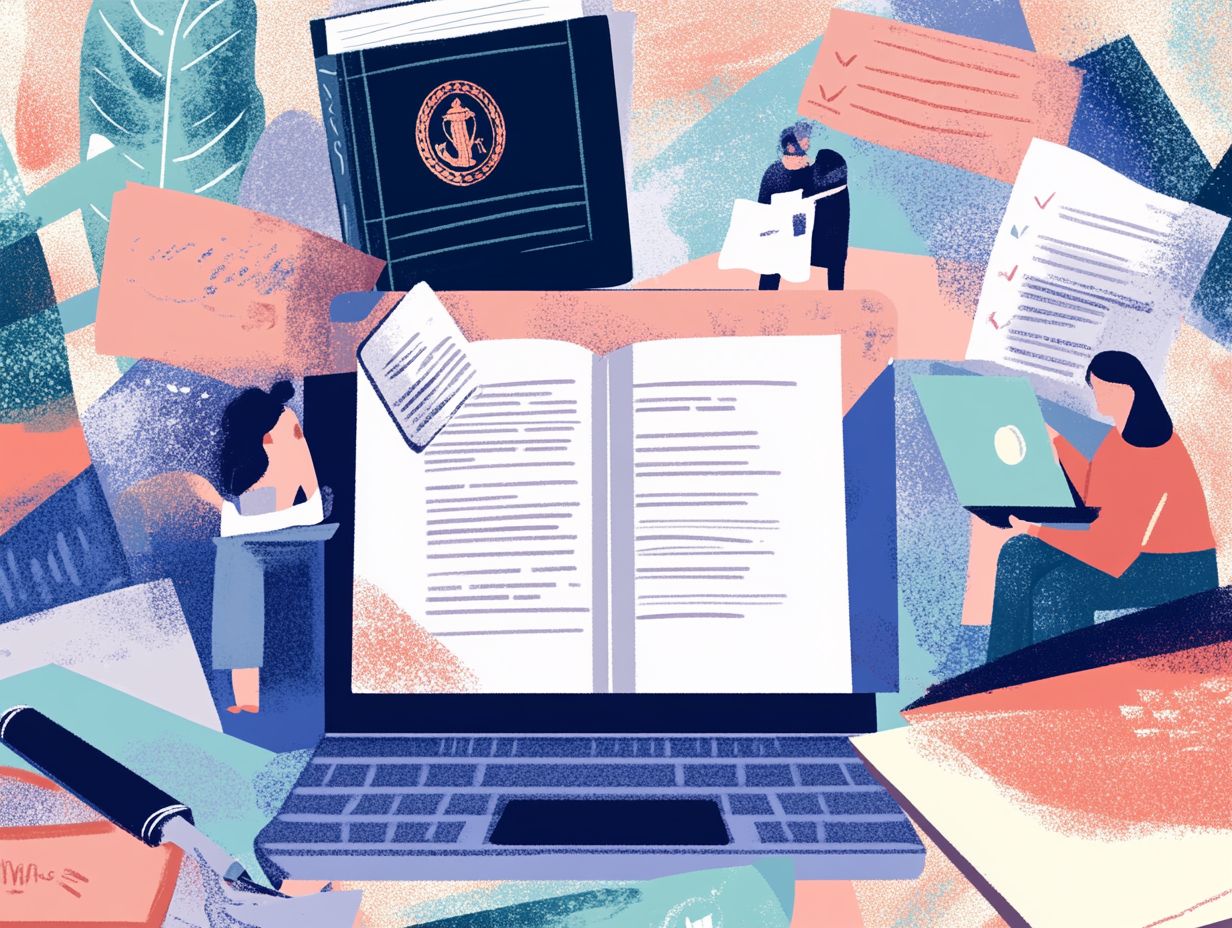
Copyright is an important form of intellectual property that gives you exclusive rights to your original works, as outlined by copyright law under the US Constitution. Its significance lies in protecting artistic expression and inspiring creativity.
This legal framework allows artists, writers, and inventors to control how their creations are utilized. It enables you to monetize your efforts without the anxiety of unauthorized exploitation.
By safeguarding your rights, copyright plays a crucial role in allowing you to invest your time and resources into innovation and storytelling. While it protects creators, copyright also maintains a delicate balance between these rights and public access.
This balance is essential for the cultural exchange of ideas and knowledge. It encourages the development of new artistic works and stimulates broader participation in creative communities, enriching society as a whole.
What Are the Different Types of Copyright?
Copyright applies to various artistic works, including literary, musical, and visual art. You’ll also encounter specific categories like works for hire and joint authorship, which significantly influence ownership and rights associated with copyrightable creations.
Understanding these categories is essential for you as a creator navigating the complex world of copyright. For example, with literary works such as novels, articles, and poetry you have exclusive rights to reproduce and distribute your creations.
Musical works encompass both compositions and recordings, giving rights holders the power to control performances and derivative use. In visual art, like paintings and photography, you must be mindful of ownership considerations, particularly regarding reproduction in various formats.
Works for hire complicate matters, as they imply that unless specified otherwise, the employer or commissioning party retains ownership of the copyright. This raises important questions for freelancers like you.
Joint authorship signifies shared ownership and rights among multiple creators, necessitating clear agreements to prevent disputes. Each of these categories shapes your creative autonomy and comes with distinct legal implications that guide how you produce, share, and monetize your work.
What Are the Steps Involved in Copyright Registration?
The process of copyright registration involves several essential steps. You ll begin by completing an application through the Copyright Office. After that, submit a tangible copy of your original works and pay the necessary fees to secure your copyright protection efficiently.
This initial submission is crucial, as it creates a legal record of your ownership. Filling out the application accurately minimizes the risk of delays or rejections that could create unnecessary hurdles down the line.
Once you’ve submitted the application, it s important to follow the timelines set by the Copyright Office closely. Make sure all materials meet their specific requirements. Keeping all correspondence and receipts is also a smart move, as these documents can serve as vital proof in the event of disputes.
Proper registration not only enhances your legal standing but also grants you the privilege of pursuing statutory damages in case of infringement. This highlights the long-term benefits of this vital process.
How Can Copyright Infringement Be Detected and Monitored?
Detecting and monitoring copyright infringement is possible through various sophisticated strategies and tools designed to analyze digital content for significant similarities. This allows you as a copyright owner to identify unauthorized uses in areas like digital audio transmission and other creative mediums.
Automated tools are essential in this process, leveraging advanced algorithms to sift through vast amounts of data and quickly flag potential infringements. While manual searches may require more effort, they can still be effective in specific contexts, allowing you to assess the nuances of your work in relation to others.
By following industry standards, you establish a solid baseline for protection. This offers guidelines that enhance your vigilance as a content creator. In an era where digital distribution is everywhere, employing a blend of these strategies provides a robust defense against misuse, ensuring that your creative efforts receive the recognition and protection they deserve.
What Are the Benefits of Having Legal Assistance for Copyright?
Engaging legal assistance for copyright matters offers a wealth of benefits. You receive expert guidance on copyright infringement cases, robust protection of your author rights, and skilled representation in copyright lawsuits. This support is essential for protecting what you ve created!
A copyright attorney can also help draft agreements that clearly outline ownership rights and usage permissions. This ensures all parties are aligned from the very start.
They can negotiate terms effectively that uphold your creative intent while also guaranteeing fair compensation for your efforts. Their proactive strategies significantly reduce the risks associated with copyright disputes by advising you on best practices for compliance and monitoring usage. This effectively serves as a safeguard against potential infringements that could jeopardize the integrity and financial viability of your original works.
How Can Copyright Education and Training Help Copyright Owners?
Copyright education and training can greatly enhance your understanding as a copyright owner. This gives you clarity on your rights, the rules that allow limited use of copyrighted works without permission (known as the fair use doctrine), and the ability to navigate copyright laws with ease especially in educational settings and creative industries.
By participating in specialized workshops, online courses, and seminars, you can deepen your grasp of intricate legal frameworks. These programs often provide insights into the latest legislative updates and best practices, enabling you to protect your creative works with assurance.
Access to expert advice and real-world case studies will allow you to make informed decisions regarding licensing agreements, collaborations, and the sharing of derivative works. This well-rounded knowledge not only strengthens your creative pursuits but also cultivates a culture of respect and understanding regarding intellectual property rights.
What Are the Key Features to Look for in Copyright Management Software?
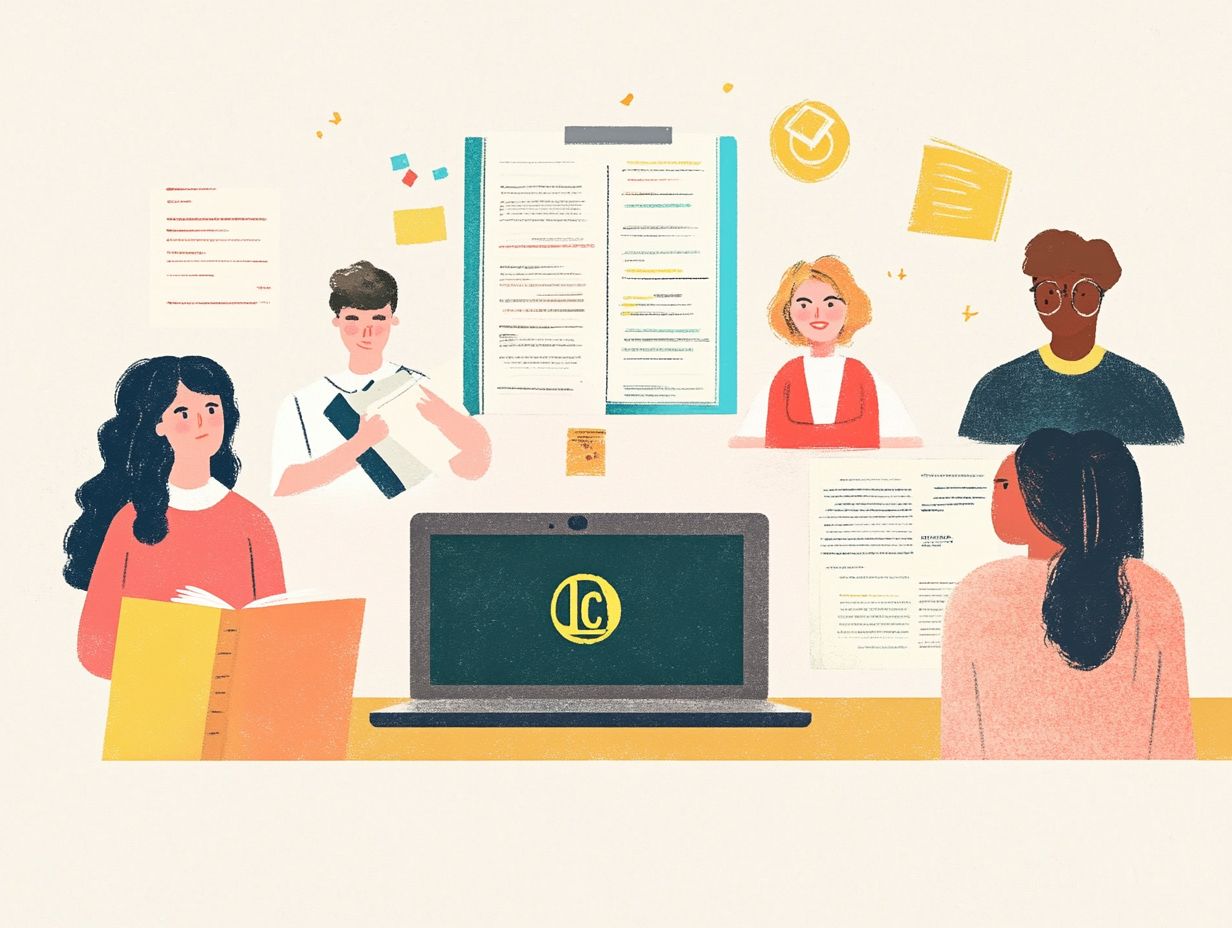
When you re selecting copyright management software, it s crucial to consider important features like usage tracking, rights management, and the efficient handling of license agreements. This ensures that you can manage your creative works effectively across various platforms.
Beyond these fundamental aspects, the software should offer robust reporting tools. These tools allow you to gain insights into how your work is being utilized and monetized.
An intuitive dashboard can elevate your experience, making it easy to use different features without facing a steep learning curve. Customizable alerts for licensing breaches or expiration dates can significantly bolster your protective measures.
This enables you to take timely action against unauthorized use. These comprehensive features not only simplify the administrative tasks involved in copyright management but also strengthen the security of your intellectual property, enabling you to dedicate more time to your artistic endeavors.
What Are the Common Challenges Faced by Copyright Owners?
Copyright owners often encounter a host of challenges, ranging from navigating copyright infringement issues to understanding the nuances of copyright law. For those in need of guidance, exploring essential resources for IP litigation research can be invaluable, especially regarding its limitations and exceptions.
Effectively utilizing their works for educational purposes while adhering to legal guidelines can feel like a tightrope walk. These hurdles can be overwhelming, especially for those just starting in the intricate world of rights that protect your creative work.
Many find themselves struggling with unauthorized reproductions of their work, leading to significant financial losses and emotional turmoil. Seek legal counsel to understand your rights and protective measures.
Engaging in ongoing education about copyright law helps you identify appropriate uses of your works. It also fosters a deeper appreciation for your creations while minimizing the risk of unintentional violations.
How Can One Protect Their Copyrighted Material Online?
Protecting your copyrighted material online is exciting! You have the power to safeguard your creations through vigilant monitoring for unauthorized use, using digital rights management tools, and understanding the legal frameworks surrounding online copyright infringement.
Incorporate visible watermarks on your images or videos. They deter infringers by showing ownership of the content. Utilizing clear copyright notices reinforces your claim, reminding users that your material is legally protected.
Embracing digital rights management technologies adds extra layers of security, enabling you to control how and when your works are accessed. Act now to protect your work! Taking these proactive measures can dramatically lower your risk of infringement.
What Are the Legal Consequences of Copyright Infringement?
The legal consequences of copyright infringement can be severe, ranging from hefty statutory damages and fines to lawsuits that might result in injunctions, compelling you to cease any unauthorized use of protected works.
As an infringer, you may face not just financial penalties but also reputational damage. This could impact your future business opportunities and personal credibility.
Take, for example, the highly publicized case of Viacom International Inc. v. YouTube, Inc. This case illustrates how copyright holders can pursue extensive legal actions against platforms that facilitate unauthorized content sharing.
On the other hand, copyright owners have a strong interest in safeguarding their creative works. Successful litigation can deter further infringement and lead to settlements that compensate them for their losses.
The implications of these legal battles extend beyond immediate penalties; they influence industry standards and the behavior of both creators and consumers. This highlights the critical importance of understanding and respecting copyright laws.
What Are the Best Practices for Copyright Owners to Follow?
Best practices for copyright owners involve grasping the nuances of copyright law and effectively monitoring your works. Consider following these 5 tips for protecting your copyrighted work to employ strategies that safeguard your intellectual property while promoting fair use for educational purposes.
By getting acquainted with key legislation and emerging trends in copyright, you can adapt your strategies to stay ahead of the curve. Establish a reliable system to track unauthorized usage, and learn how to enforce your copyright rights. Leveraging technology, such as embedding a digital signature, can prove invaluable.
Don’t miss out on exploring the valuable resources available through copyright offices and professional organizations, as they offer guidance on compliance. Engaging with educational institutions regarding fair use policies can help foster mutually beneficial relationships, creating broader access while still protecting your copyrights. For more information, consider reviewing the 5 key considerations for copyright licensing.
Ultimately, adopting a proactive approach will enable you to defend your rights while encouraging creative collaboration.
Frequently Asked Questions
Top 5 Resources Every Copyright Owner Should Know
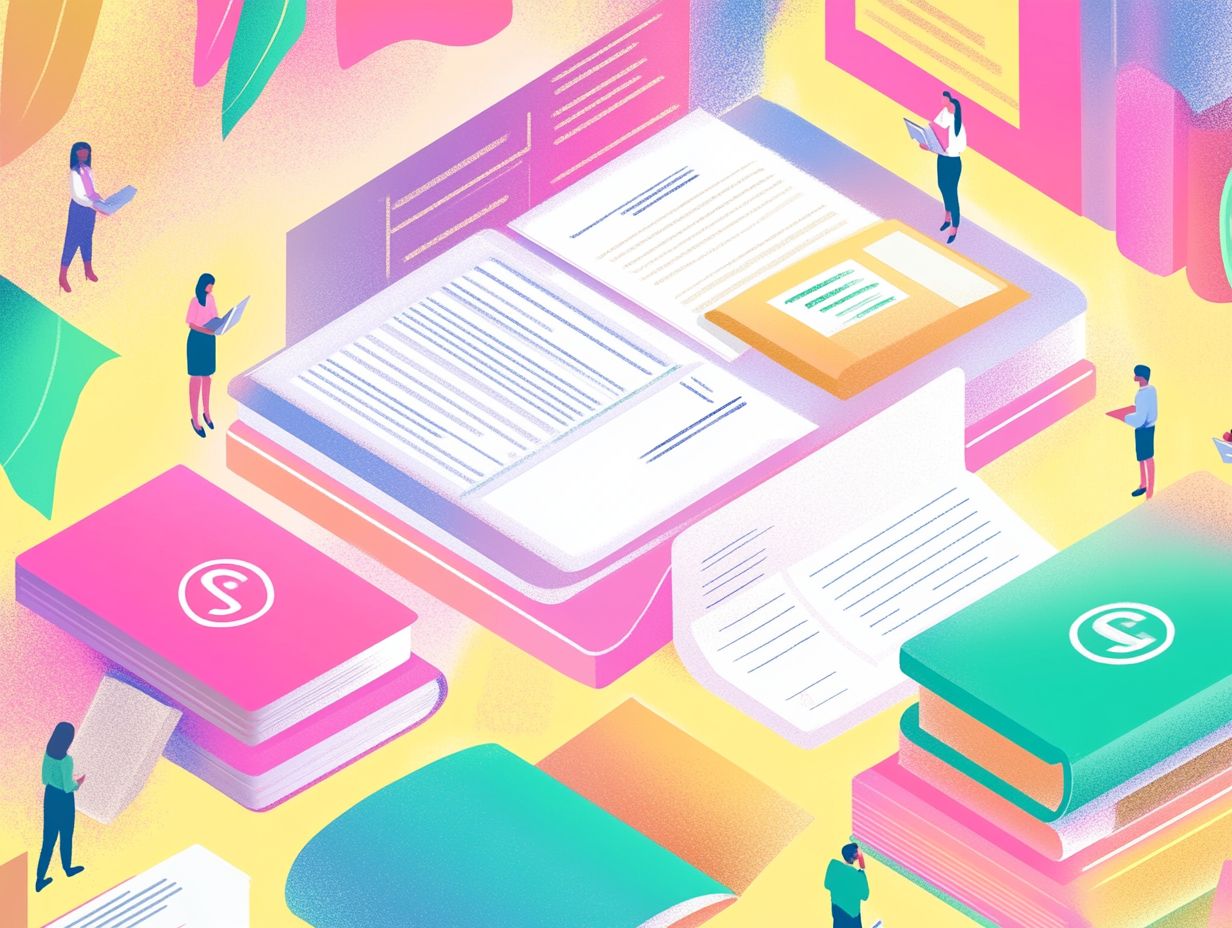
The 5 essential resources for international IP law include copyright registration, licensing agreements, legal counsel, copyright infringement monitoring, and industry organizations.
Why is Copyright Registration Important for Copyright Owners?
Copyright registration provides evidence of ownership, allows for legal action against infringement, and establishes a public record of the copyright.
What Are Licensing Agreements and Why Are They Important for Copyright Owners?
Licensing agreements are legal contracts that allow copyright owners to grant permission for others to use their copyrighted work. These agreements protect the copyright owner’s rights and ensure proper compensation for the use of their work.
Why Should Copyright Owners Seek Legal Counsel?
Copyright law can be complex and constantly evolving. It is essential for copyright owners to seek legal counsel to ensure their rights are protected and to navigate any legal issues that may arise.
How Can Copyright Infringement Monitoring Benefit Copyright Owners?
Copyright infringement monitoring involves actively searching for unauthorized use of copyrighted material and taking action to protect the owner’s rights. This process can help prevent loss of revenue and maintain the integrity of the copyrighted work.
What Industry Organizations Can Copyright Owners Join for Support and Resources?
Several industry organizations, such as the Copyright Alliance and the National Association of Music Publishers, offer support and resources for protecting and managing copyrights, including innovative copyright strategies for content creators.
Start protecting your work today!

